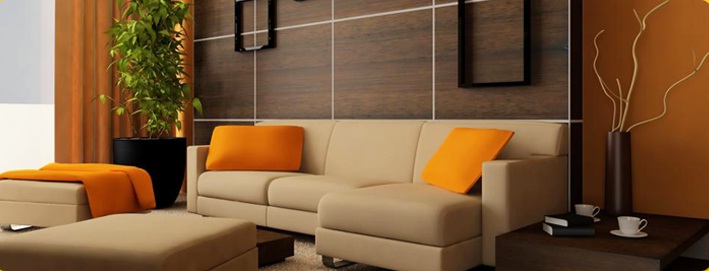Slipper chairs are low, armless chairs covered in upholstery fabric. Traditionally, these chairs were found in bedrooms to provide convenient seating when ladies put on their slippers or shoes. Today, these chairs are used in every room in the house.
While vinyl upholstery come in different grades, it’s important to understand that this grade does not reflect fabric quality but rather application. Also, the vinyl grading process is not generally consistent, as each manufacturer sets its own grades.
Unfortunately, you won’t always have the budget you need to get new furniture and change the paint and flooring in a room. Let’s talk about how reupholstering your existing furniture could fit perfectly into your redecoration budget.
Did you know that commercial or contract grade vinyl upholstery is also called expanded back vinyl? This type of upholstery is perfect for a wide range of commercial applications, including restaurant benches and waiting room benches.
If you have a sentimental attachment to an old piece of furniture, why not have it reupholstered? This is a great way to preserve an old piece while ensuring it complements the existing décor in your home.
We recognize that restaurant seating can often come in unusual sizes and shapes that can make it difficult to replace. When you want to update the look without the hassle of replacement, reupholstering the pieces is your best option.
Upholstering old furniture makes environmental, as well as economic sense. If the frame of the piece of furniture is still in good condition, there is no need to send it to a landfill. When reupholstered, only the damaged material is replaced, reducing costs and ecological impact.
Did you know that fiber from the kapok tree, a material often used in furniture upholstery, is also used to stuff teddy bears and was previously used in life jackets and similar devices because of its water resistance?
We understand that accidental spills can happen to even the most careful among us. Whether your couch is currently home to a wine stain or stubborn spaghetti sauce you can’t remove, reupholstering your furniture could be the answer.
Re-upholstering enables you to protect your commercial furniture investment and upgrade your space. Re-upholstering ensures your furniture’s longevity is maintained and enables you to individualize your commercial space to best suit your business’s needs in a cost-effective way.
Often, synthetic fabrics like olefin and vinyl are the most soil-resistant options for multi-purpose rooms that see a lot of activity, like a game room or playroom. Some other fabric options are nylon, acetate, and polyester.
A hide is actually much thicker than finished upholstery leather, which is why it is split into layers to become useable leather. The layer closest to the surface is referred to as the "top grain" and includes the actual surface of the skin with all of its natural pores, wrinkles, and scars.
Upholstered furniture is all about the details. The best cushions, for example, have a spring core similar to those found in mattresses. Spring cushions hold their shape, are more durable, and are less likely to sag or slump.
Did you know that the US is the world leader in textile research and development? Private textile companies and universities in America are constantly working to develop new textile materials and product capabilities for both apparel or upholstery.
When choosing the right fabric for an upholstered piece, function is a big consideration. Where a natural fiber like silk is an inspired choice for a formal room, a microfiber synthetic might be a better option for a family room, especially if you have small children.
Seeds from the Ceiba pentandra tree, also known as the "kapok tree," produce a fiber that is light, resilient, and resistant to water and flames. These qualities make kapok fibers ideal for use in filling mattresses, pillows, and upholstery.
In some regions, people use the term “chesterfield” to refer to any couch or sofa. Technically, however, a chesterfield is an upholstered davenport with broad, padded arms that are the same height as the back.
Did you know that you cannot visually tell how well upholstery fabric is going to hold up until it has been abrasion tested (usually through the double rub method)? Commercial grade fabrics usually wear out after many more double rubs than domestic fabrics.
If you are customizing your upholstery, it’s important to keep the fabric’s rub count in mind. This is essentially the material’s resistance to abrasion as tested by a machine that rubs the fabric over and over until it finally wears through.
Many restaurateurs choose genuine leather upholstery not only because it creates an aura of prestige and elegance, but also because of its durability. With proper care, leather can last at least the length of a person's lifetime and often much longer.
If you’re considering re-upholstering your living room furniture but don’t want to commit to a permanent change, then consider custom slipcovers. These simply fit right over the frame of your furnishings for a seamless, finished look.
Eight-way, hand-tied springs is one well known upholstery technique that produces a firm, comfortable seat. This traditional method involves fastening webbing to a sofa, attaching heavy-gauge steel coils to the webbing, and tying each coil by hand eight times.









